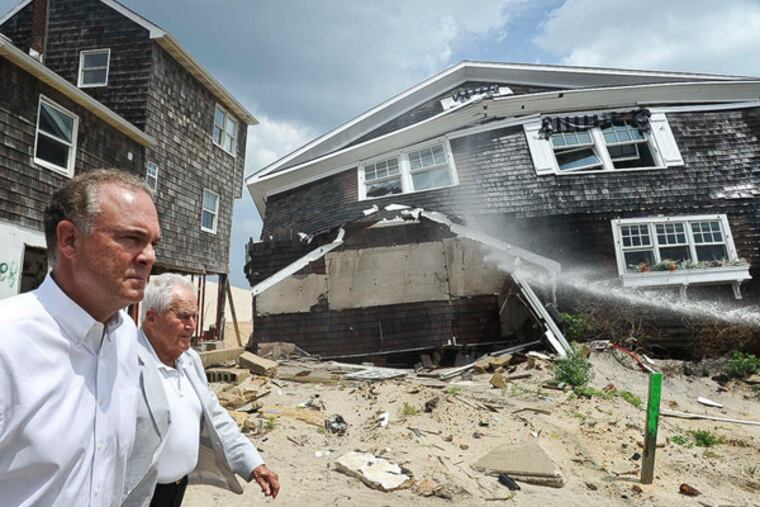Environment budget reflects N.J. fiscal woes
TRENTON New Jersey's top environmental official said the state's open space program could limp along for another year with about $100 million from canceled projects and repaid loans, but acknowledged that no long-term funding source for land and historic preservation has been established.

TRENTON New Jersey's top environmental official said the state's open space program could limp along for another year with about $100 million from canceled projects and repaid loans, but acknowledged that no long-term funding source for land and historic preservation has been established.
Environmental Protection Commissioner Bob Martin appeared before the Assembly Budget Committee on Monday for a review of the department's fiscal year 2015 budget. Two hours of questions focused on the lack of open space funding and a proposal to divert money paid by polluters from funds intended to compensate communities for the environmental damages to the general fund.
With the open space fund depleted and no solution agreed upon by Democrats and Republicans, Martin identified $100 million as available for the next 12 months to fund matching Green Acres grants with municipalities and counties.
"It's not meant to be a long-term game plan for open space," he said. "It's meant to be providing money back out to the communities over this next year."
Martin also identified $300 million in federal Sandy recovery money that is being directed to buying out homes in areas that repeatedly flood and returning the property to wetlands. Buyouts have started in South River and Sayreville.
Martin rejected a proposal that would redirect money from business tax revenue because that money funds other environmental programs, such as underground storage tank removal, capital improvements at state parks, and site remediation.
"All that money would dry up, which would leave us in a very difficult place at the end of the day," he said.
An earlier proposal to dedicate a portion of sales tax revenue to fund open space for 30 years failed to gain the legislative support needed to put the question to voters.
"This is the first governor in 60 years without a plan to fund open space and the first time since 1989 that we've run out of money," said the Sierra Club's Jeff Tittel, who sat in on the hearing.
Martin also defended a proposed change in budget language that would allow the state to divert the portion of future pollution settlements exceeding $50 million to the general fund, which some environmentalists fear could result in a windfall for the state at the expense of communities that won't be adequately compensated for environmental losses.
Asked about another proposed diversion, of $147 million from settlement money recouped so far in a Passaic River pollution case, Martin said the transfer to the general fund amounted to the state's paying itself back for previously incurred litigation and other costs. However, Martin also acknowledged that the state can recover its costs as part of the settlement with a polluter.
"It's completely wrong to take that money and use it to the general fund to cover a shortfall this year," said Assemblyman Joseph Cryan (D., Union), who sits on the budget panel. "It's bad financial policy."
Martin will go before the Senate Budget Committee on Tuesday.
Gov. Christie's proposed $34.4 billion budget must be approved by the Legislature and signed by the governor by July 1.